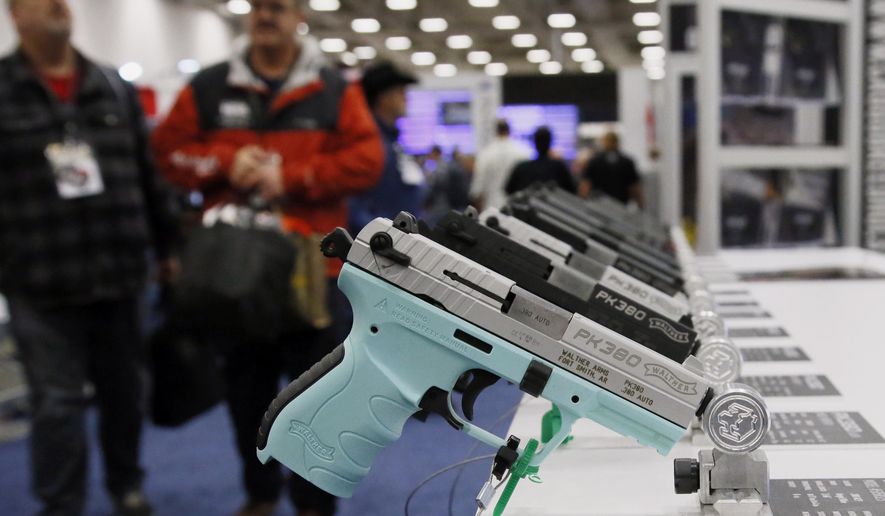The government processed more than 2.2 million gun purchase background checks last month, setting an all-time record for April, as the consumer response to the Florida school shooting and subsequent push for new gun controls takes hold.
April’s total was close to 10 percent more than the same month a year ago, and followed another record-setting month in March, according to statistics from the National Instant Criminal Background Check System.
“There is no doubt that the gun control response following the Parkland shooting has a lot to do with this — and it’s possible this rush by politicians to ’blame the gun’ could affect gun sales into the following months,” said Erich Pratt, executive director of Gun Owners of America.
Sales had slumped somewhat early in President Trump’s tenure as a years-long boom, fueled by gun owners’ worries about President Obama, faded with the change in administrations.
But the Valentine’s Day shooting at Marjory Stoneman Douglas High School in Parkland, Florida, sparked a renewed push for gun controls and a major backlash against gun-rights organizations appear to have rekindled those worries.
Mr. Pratt said summers are typically slower months for gun sales, but that gun control advocates could sustain the recent increases if they continue to lobby aggressively for new controls.
“If the anti-gun left really wanted to suppress gun sales, they would call off their attack dogs and stop pressing for increased gun control,” Mr. Pratt said.
NICS checks aren’t an exact measure of gun sales, both because not all sales have to be run through the system, and because some NICS checks aren’t related to new gun purchases. But the industry views the checks as a rough yardstick for overall interest in gun purchases.
There have been similar spikes in NICS checks in the wake of other recent mass shootings, such as the December 2012 Newtown school shooting, the December 2015 shooting in San Bernardino, and the June 2016 shooting at the Pulse nightclub in Orlando.
Mark Oliva, a spokesman for the National Shooting Sports Foundation, said broader trends are now pointing more toward a stabilization of the market, after manufacturers had raced to meet increased demand during the 2016 campaign season only to see demand drop back down after Mr. Trump was elected.
Year-over-year increases in the checks in February, March, and April had broken a streak of five straight monthly declines.
“I think what the overall trends show is that the market is still healthy,” Mr. Oliva said. “There’s still an increased interest from what we saw several years back of wanting to purchase firearms.”
Avery Gardiner, co-president of the Brady Campaign to Prevent Gun Violence, said pro-gun and industry groups themselves routinely amplify the post-shooting demand for guns by fomenting fears of massive confiscation schemes.
“In the aftermath of a high-profile shooting, they do it with the boogeyman of ’there’s going to be massive new gun control legislation,’” she said. “When they don’t have that to point to, they point to the boogeyman of ’you need to buy more guns to keep your family safe.’”
While talk of major new gun-sales restrictions at the federal level has faded, there’s been action elsewhere.
Florida raised the minimum age requirement for most rifle purchases from 18 to 21 in the state — prompting a lawsuit from the National Rifle Association. Several major retailers, like Dick’s and Wal-Mart, have taken similar steps to restrict gun sales.
“I think that some people maybe saw that as an indication that that was the time for them to kind of get out and find a firearm that they wanted, that was going to suit their needs,” said Mr. Oliva.
• David Sherfinski can be reached at dsherfinski@washingtontimes.com.




Please read our comment policy before commenting.